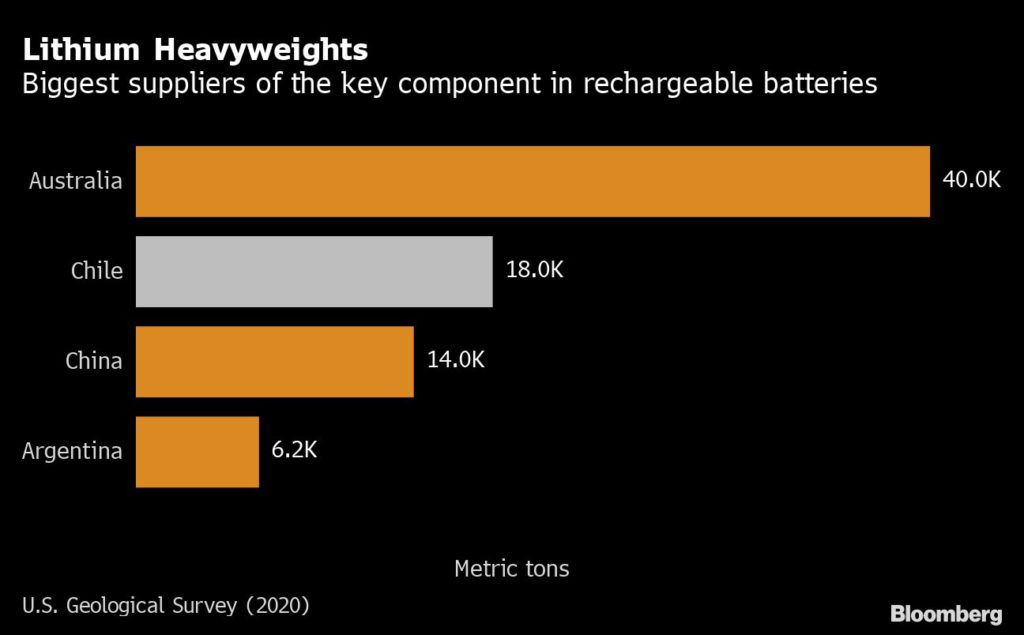Chile tensions over lithium contracts show scope of clean energy task

Mounting opposition to new lithium contracts in Chile is the latest indication of just how difficult it will be for the world to churn out the building blocks of the clean-energy transition.
In the final months of its term, the government of President Sebastian Pinera is about to award new production quotas in an effort to tap more of the world’s biggest reserves. It comes as surging electric-vehicle demand sends prices of the battery metal to record highs.
Previously, such efforts would have met with little resistance given the abundance of lithium hidden under Chilean salt flats and how clean and easy it is to produce compared with the hard-rock mining practiced in top producer Australia. After all, winners of the new contracts will still have to undertake exploration work and go through all the usual permitting before they can develop projects. But politics — and environmental and social sensibilities — have changed.
Pinera, 72, is about to hand over power to 35-year-old left-winger Gabriel Boric, whose team accuses the outgoing government of trying to rush through the new contracts at a time when the country is reassessing its stance on natural resources in a process to draft a new constitution.
This week, a group of opposition lower-house members filed an injunction to halt the bidding process, accusing authorities of bypassing community consultation obligations in a fragile desert ecosystem. An umbrella union of copper mining workers slammed the process as extemporaneous.
The crescendo of criticism underscores the enormous challenge of getting societies on board to crank up supply of metals like nickel, cobalt and lithium in the transition away from fossil fuels.
Chile, the largest producer of lithium after Australia, has seen its share of the market dwindle in recent years, producing about 18,000 metric tons last year. The country is offering five contracts to produce as much as 80,000 tons apiece over 20 years.

(By James Attwood, with assistance from Valentina Fuentes)
{{ commodity.name }}
{{ post.title }}
{{ post.date }}




Comments